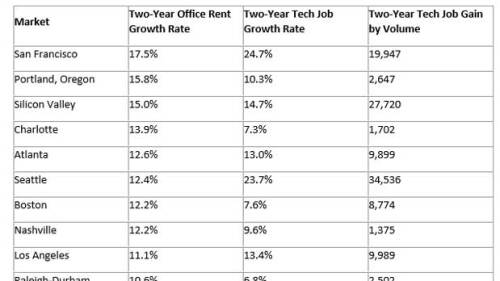News
Members of ULI’s Asia Pacific Tech Council discuss the new council’s areas of focus, the interface between technology startups and the real estate industry, the challenges of incorporating rapidly evolving technologies, the promise of big data, and related trends.
In 2017, the New York–based Northwood Investors spent $1.2 billion to purchase Ballantyne Corporate Park, a highly successful office property in Charlotte—the single-largest real estate transaction in North Carolina’s history at the time.
Sam Chandan, associate dean of New York University’s Schack Institute of Real Estate and host of the Real Estate Hour on SiriusXM Radio presented his economic forecast for 2020 at a ULI New York event in November.
After several years of steady growth, Asia Pacific real estate continues to produce strong returns, but caution is increasingly embedded into investor strategies, according to Emerging Trends in Real Estate ® Asia Pacific 2020, an annual real estate forecast jointly published by ULI and PwC. Singapore, Tokyo, Sydney, and Melbourne are ranked as four of the top five markets for investment prospects, reflecting investor preference for regional markets that are large, liquid, and defensive.
In Toronto, Sidewalk Labs has sketched out an ambitious vision for a high-tech urban environment designed with human needs rather than technology in mind. Whether it will come to fruition remains unclear.
The tech industry has claimed an increasingly larger share of major U.S. office-leasing activity as real estate and economic indicators point to continued momentum for the sector over the next two years, according to CBRE’s annual Tech-30 report. CBRE’s analysis found that tech companies accounted for 21 percent of major office-leasing activity in the first half of this year, up from 11 percent when CBRE began tracking the figures in 2011.
Climate change and its relationship to water management are having a profound impact on cities, compounded by the global trend toward urbanization. Harvard University recently hosted a wide-ranging discussion titled, “The Future of Cities: Water,” which assembled an international panel of experts to provide insights into the challenges of water-related climate change as well as potential solutions for a broad range of city environments.
For more than a decade, online hospitality marketplaces such as Airbnb, HomeAway, Vrbo, and others have disrupted the global lodging industry by offering inexpensive short-term rental accommodations. But almost from their inception, these online marketplaces have been at loggerheads with officials and local communities who blame the firms for reducing tax revenue, causing havoc in some neighborhoods, and raising housing prices.
A midyear survey of home sales rates at the 50 top-selling master-planned communities (MPCs) in the United States indicates the potential for a 10 percent increase by the end of 2019 compared with last year. That exceeds expectations, according to RCLCO’s report, Top-Selling Master-Planned Communities Mid-Year 2019. The listed communities, on average, are experiencing 3 percent growth in sales over midyear 2018.
With an unemployment rate of 2.6 percent, a diverse economy anchored by health and education institutions, and a flourishing tech and life sciences sector, Greater Boston appears poised for continued growth, even with the specter of a potential recession on the horizon. But, like many other growing U.S. cities, the demand for housing far outstrips the supply. Much of the expanding workforce is in danger of being priced out of the market, as are many longtime residents.








